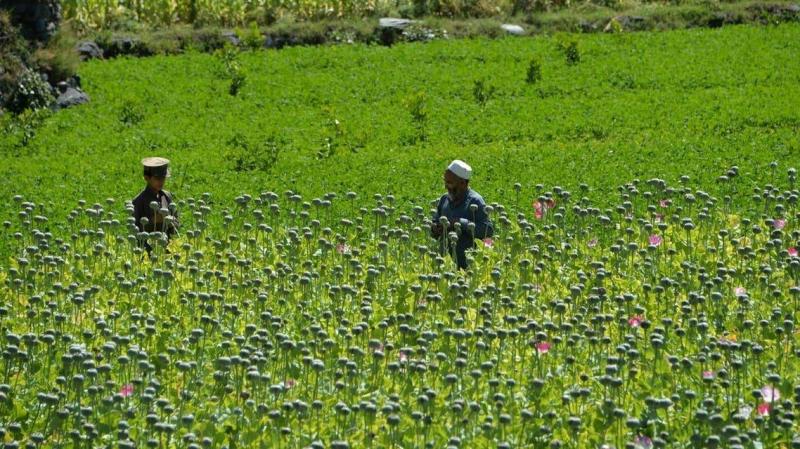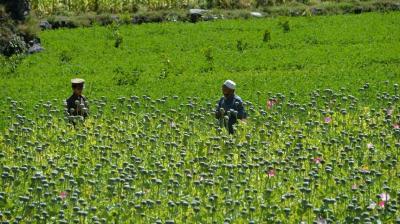For many years, opium trade has formed a cornerstone of wealth in Afghanistan, with the country producing thousands of tons of this drug during the 1990s, especially after three years into the Taliban's rule. It seems that the return of the Taliban to power since August 2021 has revived this internationally banned trade, with several markets flourishing while the group appears to turn a blind eye, allowing this trade to take its course.
Opium in Public!
A new market in the city of Taluqan, the capital of Takhar province in northeastern Afghanistan, has seen dozens of traders engaged in the opium trade to varying degrees, according to a report published by the Wall Street Journal on Sunday. This crowded market has emerged since the Taliban's ascent to power, with plastic bags filled with narcotic substances displayed openly on the roads.
Poppies Instead of Wheat
Simultaneously, farmers in Kandahar, the birthplace of the Taliban, have started planting poppies on lands where they used to grow wheat or corn. A Taliban intelligence official present at the opium market in Taluqan was solely concerned with asking visiting foreign journalists to leave, to prevent documenting what was happening there, justifying that people were "hungry."
False Promises
The Taliban had previously promised to eradicate the drug trade in the country, which is worth billions of dollars and represents 85% of global opium production, back in late August. However, just three months later, the poppy cultivation season began to thrive, contradicting the group's promises completely.
In contrast, statements from the Taliban Interior Ministry spokesman, Qari Saeed Khosti, revealed a clear contradiction between the movement’s actions and words, as he stated that the authorities in Kabul are still serious about combating the drug trade in the country. He claimed that the Taliban government's goal is to prevent "the growth and trade of drugs." It is noteworthy that during the 20 years of U.S. presence in Afghanistan, the Taliban used drug trade to finance its insurgency. Last year, the area cultivated with poppies in Afghanistan increased by 37% to reach 554,000 acres, according to estimates from the United Nations Office on Drugs and Crime.




